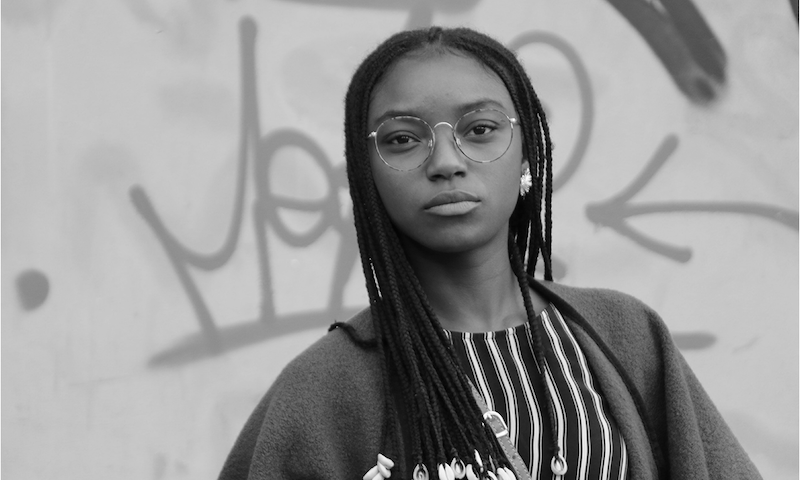
In Quebec, news about successful businesswomen of African or Haitian descent typically remains under the radar. They are virtually invisible in most media coverage. Nor do you hear about them in leadership positions. Or on any businesswomen’s networks. And yet that doesn’t stop them from overcoming prejudices and obstacles. That is impressive. It is already challenging to succeed as an entrepreneur. And it is increasingly challenging if you are black and a woman.
Hopeless closed doors!
“I must have had at least 500 no’s in my life, if not more before I got a first yes,” says entrepreneur Vickie Joseph, born in Montreal to Haitian parents. The 41-year-old launched her own cosmetics brand, V Kosmetik, in 2016. Her cosmetics brand is now closing deals in the United States and Africa. V Kosmetik’s products are tailored specifically to women of colour’s skin tones, whether African, Asian or North African. To gain a banker’s trust or a major pharmacy chain, she had to knock on many doors. Unfortunately, there were many hopeless closed doors. “Even today, I have to explain that there is a lot of demand in Quebec’s black communities. And that the ethnic diversity in Quebec is growing; therefore the demand is increasing.”
If there are no role models, create your own opportunities
Congolese, French, and now Canadian Aurore Robert-Mavounia has three children. They inspired her to create Miss Mav. Miss Mav is an organisation that is strongly committed to the community; they support families and organisations in preparing healthy and fun lunch boxes. Entreprendre Ici, an organisation of the Ministère of Economy and Innovation, provided Mavounia with the financial support of $25,000. Entreprendre Ici supports startups and entrepreneurs from diverse ethnic-cultural backgrounds who want to start, buy, or grow a business. Although highly educated, being a black woman was a barrier for Mavounia. She did not encounter any role models within any management positions she held. By becoming an entrepreneur, she wanted to create her own opportunities.
Twelve black businesswomen on Evol-list (formerly Femmessor)
In 2020, three years after its founding, Miss Mav was on the Evol List. The EvolList is a Quebec-exclusive organisation committed to supporting female entrepreneurship. This list includes companies that have positively impacted society with their work in the UN Sustainable Development Goals (SDGs). Evol chose 12 winners this year as the 2019 list of winners was “severely lacking” in diversity.
Revenue tripled, and yet unable to borrow a penny
Of these 12 female afro-entrepreneurs included Schamma Rosidor, born to Haitian parents. Rosidor bought Ayacaona: a company that makes natural and artisanal products for frizzy hair. The company has since tripled its revenue three years after starting. Rosidor: ” I notice that sometimes you have to add a little more to prove that you know your field. Even if you are highly educated. Black women are still seen as wage earners who work from 9 to 5 and take care of their children at home.” The company’s goals are to move to a larger space and buy machinery to produce the products in larger quantities. To do this, they need $100,000. So far, financial institutions are holding off. They suggest coming back later.
Black entrepreneurs underestimate their contribution
According to diversity consultant and comedian of Haitian descent, Dorothy Rhau, CEO of Audace au Féminin and founder of Salon International de la Femme Noire, notes that there are still barriers. She explains that there is still ignorance about the products offered by black entrepreneurs and a lack of knowledge of the market. To change this, Joseph of V Kosmetik believes that black women should be in leadership positions. Rhau agrees that the heads of large companies lack people who know this market. Rhau is working to change attitudes, including within networks of businesswomen. Rhau already brought about that change as a former Femmessor. She was the one who put the lack of diversity on the agenda.
The Quebec Business Women’s Network: an old-fashioned stronghold
To date, the annual gala very rarely hands out awards to women entrepreneurs from other backgrounds. In 20 years, the gala designated 200 winners, including six winners from India and North Africa. The gala never selected a black woman as a winner. Again, Rhau sounded the alarm. The Network’s CEO, Ruth Vachon, promises change.
Education is the key to prosperity
According to Rhau, black women entrepreneurs are essential. Their professional successes provide more family income, allowing their children to attend better schools and universities. This creates economic prosperity and progress in the black community in the long run.
Sources
Femmes, noires, entrepreneures et déterminées à percer: https://ici.radio-canada.ca/nouvelle/1761916/femme-noire-entrepreneure-africaine-haitienne-produits-beaute-alimentation
Femmessor devient Evol: https://evol.ca/
La ressource pour les entrepreneurs de la diversité ethnoculturelle: https://entreprendreici.org/
